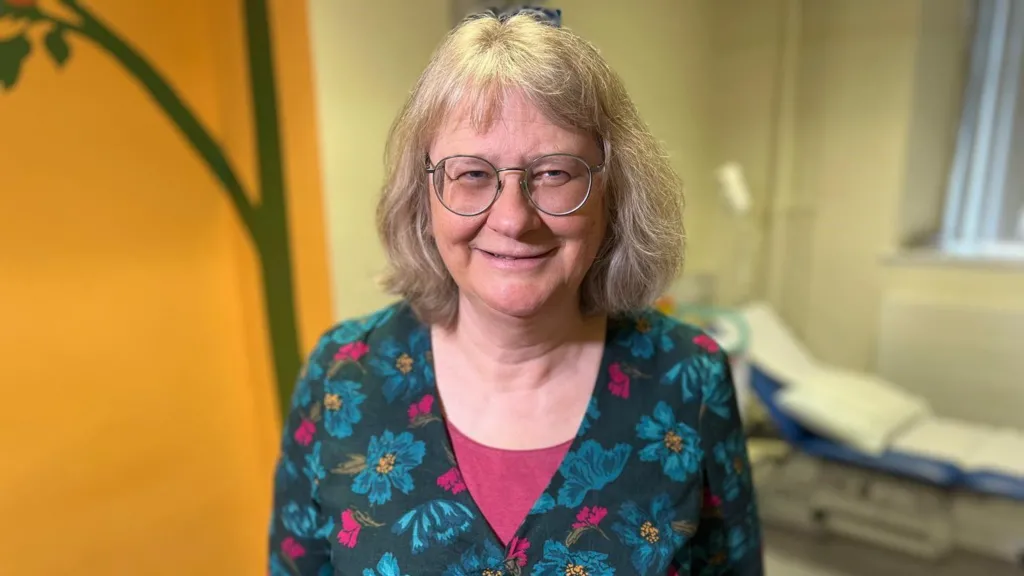Brian Watt, 69, of Hopeman in Moray, is a former whisky distillery manager who received his diagnosis in 2016.
"I knew there was Huntington's disease in my family – my father and my sister were both diagnosed," he said.
"I wasn't sure whether to go ahead with the test, but I am glad I did."
Brian walks his two dogs along Hopeman beach every day.
He believes keeping busy and having an upbeat outlook are vital when living with Huntington's.
"Zosia (Prof Miedzybrodzka) said to me the best way to manage Huntington's disease is with a balance of lifestyle, attitude and medication and I think that is spot-on," he said.
"I try to keep a healthy lifestyle and positive attitude and I'm doing just fine."
Sandy Patience, 62, of Inverness, was diagnosed with disease in 2017.
He had lost relatives to the disease, and recalls the support of his wife Laura at the time.
"I said to Laura 'this is a game changer in our 20 years together – please can you leave me and live the rest of your life with someone else'.
"But she didn't, because her love for me is as immense as mine for her. We are very very blessed, and I can't imagine life without my soulmate by my side – she picks me up if I am feeling down."
He added: "This is a fantastic opportunity for other people, just like me, to take a big leap forward and consider testing.
"I want everyone to know that testing positive is not the end of the world, it may even be the beginning of better family relationships and countless other positive things."
What is Huntington's disease?
Huntington's disease is an inherited condition that stops parts of the brain working properly and is usually fatal within 20 years of the first appearance of symptoms.
These include difficulty concentrating, depression, stumbling and clumsiness, involuntary jerking of the limbs and body, mood swings and personality changes, problems swallowing, speaking and breathing.
They usually begin between the age of 30 and 50 and gradually get worse over time.
There is currently no cure but treatment can help to deal with some of the symptoms.
Source: NHS website
